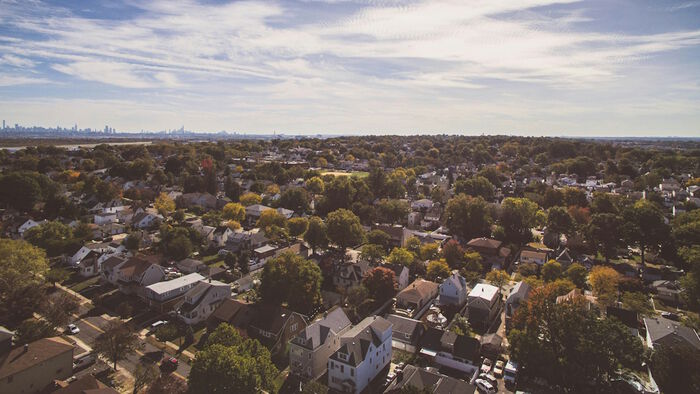Four years ago, when I started interacting with local politicians of Alternative für Deutschland or the AfD – a radical right party in Germany, it opened up a world of intense party activity to me that could hardly be grasped from the outside. It was a world populated mainly by ordinary party members, who were resourceful, deeply rooted in the region they operated in, and groomed in the art of organised politics. They were the face and feet of the party on the ground, the rank-and-file of their political organization who defied the popular notion that radical right politics is nothing but vindictive politicking carried out on the whims of a charismatic leader and their fanatical followers. Last week, a long-standing local politician of the AfD won the first ever (regional) governing post for his party in Germany. This shocking victory for a party shunned by all mainstream parties in the country, has, yet again, highlighted the need to look into radical right politics beyond the top leadership. It also vindicates my findings on the importance of grassroot activism in radical right mobilisation that I have documented elsewhere, which can be summarized in a nutshell as: the ground game matters.
To date, the ‘how’ of right-wing organisation has remained secondary to ‘for what’ and ‘for whom’. While there are important and morally compelling reasons to emphasise the motives of right-wing movements – given their record of inflicting horrific atrocities on racial, ethnic, religious minorities in global history – neglect of their organisational character can have far-reaching consequences, not only for social theory, but also the real world. The alarming failure of opinion surveys and political polls e.g. to predict Brexit and America under Trump, have bothered and boggled the scholarly community, sociologists and political scientists alike. Their analyses of the ideological motivations of right-wing social and political groups may well be hard-hitting, but their lack of empirical data on the organizational details of such groups have revealed severe limitations on their analysis of ideologies. As it becomes harder to predict trajectories of rightist movements based on external factors, a closer view of the organizational choices that right-wing groups make and the type of people they attract becomes more important. My research on the AfD to develop an inside-out picture of right-wing mobilisation was precisely an attempt to respond to these demands.
Organising it ‘right’
Since its decade-long political existence the AfD has steadily built up a robust network of local and regional level politicians -- particularly in the eastern German state of Saxony. Most of these party members have been on a city- or county council, or even state parliament, since 2013, and have since then represented their party in numerous law-making bodies. In Saxony, the party has established several intra-party platforms that train politicians – new and old – in the craft of local Realpolitik. Local party executive committees (Kreisvorstände) as well as state party boards (Landesvorstand) are prime examples of such intra-party avenues that train grassroot members in skills required for competitive party politics such as PR, networking with other regional branches, and campaign management, making them better equipped to take on the responsibilities of public office. Through my fieldwork, I found that political training via membership of a Kreisvorstand, leading to election in a city- or county council, and further up at state level, was standard practice, known in German political discourse as Ochsentour. Party conferences are another well-established intra-party forum where members could showcase their political skills and networking abilities. At party conferences, inquiries regarding contribution to local party activity constituted one of the mandatory questions for all prospective electoral candidates in the race for nomination at local or regional level. Aspiring candidates were routinely grilled over their level of participation in party activism by attendees. Those out of touch with local party branches often faced consequences, including non-selection for election nomination.
Some intra-party avenues offered possibilities to build a knowledge base and hone the presentation skills of members. Topical committees known as Fachausschüsse (expert committees) at sub-party level were one such platform. By no means unique to the AfD, such committees at national and state level are a fairly standard organisational component of all major political parties in Germany. They are usually made of subject experts within the party, and assist federal and state parliamentarians in an advisory capacity, with emphasis on particular topics such as female emancipation, immigration, finance, etc. For regional party leaders, these committees provide a subject-oriented intra-party audience to present their engagement in policy areas and assess their work. For ordinary members, these committees present a chance to gain more insights into the subject or even exert some influence over regional leadership through policy suggestions. By investing into these and other conventional intra-party channels, the party has been able to increase its standing in local and regional politics, and thereby fend off the damaging effects of political stigmatization to a considerable extent. It is thanks to this carefully crafted political activism that the party has maintained its prominent regional presence.
Resourcefulness is key
Many Saxon AfD politicians were long-standing members of various professional organisations that predated their AfD association. Membership in local sport clubs and voluntary engagement in community organisations helped many strike deeper roots in their communities and establish credibility. Membership in local trusts dedicated to conservative themes like Heimatschutz (homeland protection) or Denkmalstiftung (Trust for Monument Protection) has enabled them to tap into pre-existing sentiment pools. This was particularly true in rural parts of Saxony, where a strong right-wing subculture prevails. In urban locales with a strong presence of anti-fascist networks, many resorted to clandestine mobilisation. Many self-employed professionals and freelance consultants maintained a resolutely apolitical online and offline appearance. Given the overwhelming presence of Mittelständler (smaller entrepreneurs), it is not surprising that many are plugged into various professional organisations, from tourism boards to forestry organisations, from technical glasswork societies to business incubators. A few had played an active role in anti-government protests and reformist movements in the final years of German Democratic Republic, and thus accumulated first-hand experience of protest politics. Utilising the broad spectrum of voluntary associations in Germany, many members have successfully drawn on various forms of civic engagement, and honed skills that have contributed to the professionalisation of the party.
Apart from political competence, party members can also bring intellectual resources, appealing to a wider segment of the public, and raise the party’s profile. Based on my fieldwork experience and public records, a majority of the AfD politicians in the Saxon state parliament and local councils are members of an educated bourgeoisie. This includes highly esteemed professions such as lawyers, professors, and doctors, enhancing the image of the party (particularly in early years) as a Professorenpartei – a party of professors.Those who are public sector employees e.g. police officers, school teachers and professors, enjoy high social status as Beamte (civil servants), coupled with high income levels and job security. A large majority of party members in Saxony hail from the German Mittelstand, comprising small business owners, self-employed professionals as well as those engaged in craftmanship. My fieldwork suggested that economic worries had not entirely escaped the party members, but they did not necessarily consider themselves economic ‘precariat’. Many lived a comfortably middle-class life, better cushioned against economic upheaval than many from younger generations. Such cushioning has undoubtedly affected their engagement in the party favourably. They have brought on board a variety of discretionary resources: time, skills, professional networks and last but not the least money, and played a key role in building the party on the ground.
What can we learn from right-wing grassroots activism?
My days in the field witnessed some impressive demonstrations of unassuming party members working through the ranks of party bureaucracy, and reaching higher echelons by virtue of their sustained involvement at grassroots level. However, democratic activism does not only presume participation, but also adherence to ideals of tolerance, mutual respect and equal opportunities. Investigations into politics and especially right-wing politics cannot and should not remain immune to substance while scholars analyse the style. The committed engagement of party workers in Saxony demonstrated intense levels of civic activism, but their political goals are unmistakably illiberal. The conservative proclivity to mingle with ‘their own kind’ may be understandable, but the obstinate adherence to a exclusionary ethnic notion of citizenship goes against equality as well as individual freedom. Their outgroup hostility towards Muslim migrants as the ultimate ‘unassimilated other’ threatens the constitutional protection of minorities guaranteed in liberal democracies. Instead, it legitimises the ‘tyranny of the majority’. The activism of party members brings to the fore a process which Yasha Mounk has called a gradual de-coupling of liberalism and democracy. For a long time, the marriage of liberal ideas – individual freedom, equal rights, independent institutions including free press – and democratic forms of political participation seemed not only promising, but invincible. However, recent political developments have painfully revealed that the stability of liberal democracy is not guaranteed, but a perpetual work in progress. It requires vigilance, citizens’ activism, and a great deal of reflection. Developing a nuanced, situated and locally attuned scrutiny of right-wing politics is very much part of this reflective exercise. A close, non-stereotyped reading of right-wing activism can feed into better informed strategies to oppose their illiberal political agenda, and thwart their growth. An astute understanding of their ground game remains indispensable for that end.
.jpg)

.jpg?alt=listing)


